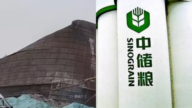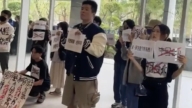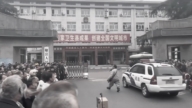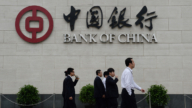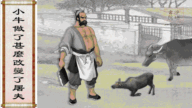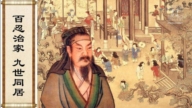【新唐人2011年12月13日讯】美国《洛杉矶时报》星期天(12月11日)在评论版发表了中国作家余华的文章。余华指出,当年中共党魁毛泽东用于鼓动农民革命的“筷子理论”,正是这一代政府当下的难题。他说,中国的民众就像一根根筷子,每根筷子势单力薄,但“愤怒的筷子”集结起来就会爆发革命。学者们指出,无论是民主还是改革,一党专政已经没有出路。
余华在《中国之秋并非阿拉伯之春》(Chinese Autumn is no Arab Spring)文中说,毛泽东当年曾以“一根筷子易断,一把筷子难折”的道理,鼓动农民和他一起闹革命,一根筷子还是一把筷子,再次成为中国所面临的问题。
余华说,目前“愤怒的筷子”遍布全中国各地,每年爆发的群体抗争事件数以万计。据中国学者估算,仅去年一年,中国各地罢工、抗议事件就有18万起,平均每天493起,比十年前增长了三倍以上。
武汉著名民主人士、中国民主党创始人之一秦永敏:“要说从人数上,绝对人数上,反对这些侵犯人权做法的民众,数量大大高于当局的这些人员。但是呢,当局几十年来一直严禁中国人民结社,甚至对任何民众自发的走到一起,它们都极为恐惧。”
出于对失去政权的恐惧,中共官方在“维稳”上撒的钱与“筷子们的愤怒”一同飙升。 中国宪政学者章立凡对《美国之音》形容,目前维稳在中国已经变成一个产业,地方和军队都希望通过“维稳”来多要钱,地方上甚至希望出现一些骚乱,通过镇压来博取政绩。
突尼斯一个水果小贩的自焚引发了“茉莉花革命”,进而引爆了席卷中东的“阿拉伯之春”。尽管中共官方不断封锁和扭曲这些民主革命推翻独裁的消息,但人们一直在思考,目前中国各地的抗争是否会引发“中国之春”?
美国乔治梅森大学教授章天亮:“各地在抗争的时候,他们并没有把结束中共的这个体制作为抗争的主题,他们的抗争都是一个具体的个案,比如说我这个地方环境污染啦,或者说我这个地方拆迁啦。当你在为一个利益诉求的话,中共一方面铁腕镇压,另外一方面它可以暂时去满足你这种利益诉求。但是很多人看不到,就是结束这个一党专政,才是真正解决中国这些社会问题的原因。”
余华认为,目前摆在中国面前的只有两条道路:民主或者革命。
美国乔治梅森大学教授章天亮博士:“其实余华讲的这两点,也就是说,中共一党专政是没有出路的。不管是民主还是革命,它的目地都是为了结束一党专政。其实结束一党专政已经成为民众心中的一个愿望,绝大多数的民众心中都希望结束一党专政,包括那些共产党的官员们。”
而章立凡指出,中共高层间的争斗,地方执政者和北京之间的博弈,都将使改革的道路十分漫长而艰难,恐怕会陷入长期的僵局。他说,如果在十八大以后,新核心在他们的第一任期内不能够启动政治体制改革的话,也就不必启动了,那就是只有等着最终被人民唾弃。
新唐人记者朱善智、尚燕、柏妮采访报导。
Where do angry Chinese chopsticks point to?
The U.S. “Los Angeles Times” has published an article written
by Yu Hua, a Chinese author on Dec. 11.
In the article, Yu Hua has pointed out that Mao Zedong,
the former chairman of the Chinese Communist Party (CCP)
used the “chopsticks theory” to agitate for revolution,
which is a concern for the current government.
The “chopsticks theory” says the Chinese people are like
a bunch of chopsticks.
One chopstick is easy to snap, but the “Angry Chopsticks”
held together will be able to start a revolution.
Scholars have pointed out that no matter whether it will be
democracy or a revolution, there is no future for one-party dictatorship.
Yu Hua said in his article “The Chinese Autumn is no Arab
Spring” and that
Mao Zedong goaded Chinese farmers into rebellion by
spreading his theory:
one chopstick is easy to be snap, while a bunch of chopsticks
is impossible to break .
Now the “Chopsticks Theory “is once again in focus in China.
Yu Hua said, there’s “Angry Chopsticks” all over China, and
There are tens of thousands of fights annually in China.
According To the estimate of Chinese scholars, there were
180,000 strikes and protests in China last year, which shows an average of 493 events per day.
The amount of unrest is more than three times
that of ten years ago.
Qin Yongmin, a famous democrat in Wuhan city,
the co- founder of the Chinese democratic party said,
”The number of people that are against human rights violation
is much more than the number of officials in China.
However, the CCP regime prohibits, large gatherings,
and for people to get together spontaneously. The CCP is very scary.”
Because of the fear of losing power, the CCP spends a large
amount of money in maintaining stability,
but the anger of the “ Chopsticks “ is increased
at the same pace.
Zhang Lifan, a Chinese constitutional scholar told Voice of America,
that to maintain stability has become an industry in China.
Local government and the military use this reason as a ruse
to ask for more money from the central government.
Some local government s even anticipate unrest, as a means
by which they can achieve political qualification by consequent repression of the anticipated conflict.
In Tunisia, a fruit hawker’s self-immolation led to the
“Jasmine Revolution”, which swept the Middle East into the “Arab Spring” revolution.
Although the CCP regime blocked and distorted this news
for fear that a democratic revolution should topple the dictatorship in China,
but many Chinese have been wondering whether the unrest
all over China can lead to a “China Spring”?
Zhang Tianliang, a professor from George Mason University
says: “The Chinese don’t have as a target the end of the CCP’s dictatorship when they fight.
Their fights are dedicated to their special needs,
such as like pollution, demolition of property , etc.
When you fight for one reason, the CCP suppresses this with
an iron fist but will meet some of your needs at the same time.
Many Chinese don’t realize that to end the one-party dictatorship,
the real solution is to solve all the social problems in China.”
Yu Hua thinks that there are only two ways ahead for China:
either democracy or revolution.
Zhang Tianliang, a professor from George Mason University
says: “With the two solutions that Yu Hua mentioned there’s no way either can happen with the CCP in power.
No matter whether it’s to be democracy or revolution,
the purpose is the same, which is to end the dictatorship.
In fact, to end the CCP’s dictatorship
is a wish of the Chinese people.
Most Chinese wish to end the one-party dictatorship,
and this includes CCP officials.”
Zhang Lifan, a Chinese constitutional scholar said, the fighting
among CCP senior officials, between local governor and central rulers,
will make the road to reform difficult and long, and may also
lead the political system into a long-term deadlock.
He said that the new core-leading group that will be in
power after the 18th congress must start political reform
in their first term, otherwise expect to be abandoned
by the people.
NTD Reporters: Zhu Zhishan, Shang Yan and Bo Ni


